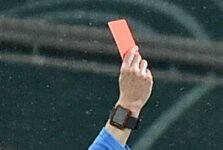
Not only did Treu – a determined, intense, perfectionist – see his dream of taking a Sevens team to the 2016 Olympics pretty much go up in smoke, he had to witness the Blitzboks finally fulfil his vision for them on the same day.
Knowing his obsessive nature, he will probably agonise about losing out on what was a stated career ambition. But Sevens rugby’s loss is most definitely the 15-man code’s gain.
Treu – whom I’ve felt should have moved to the more densely populated version of the game earlier – has been snapped up by Western Province in a yet-to-be-defined coaching role, which is great business by the Cape Town side.
Looking at the success of the Springbok Sevens team since he left, a few might be tempted to underrate Treu’s influence in their winning the Commonwealth Games gold and their status as the leaders of the World Rugby Sevens Series.
Neil Powell, with his calm demeanour, minimalist half-time talks and intuitive tactics, has done wonderful work to take the team forward. But it was from the solid foundation laid by Treu that the team could flourish like it is now.
Few people knew the lengths to which Treu went to catch and attempt to gain an edge on the All Black Sevens team when he was coaching the Blitzboks.
An example of this is in Marco Botha’s insightful book Coach: How South African Sports Leaders Cultivate Excellence, in which Treu shares how he had experts do brain-profiling on the national Sevens team.
The objective was to work out how each of his players received information so that he could communicate with them in a manner to which they were receptive.
The whole thing evolved to the point at which what he gleaned from the results was roped into the team’s calls, depending on what the match situation was.
When you consider the amount of work that would have gone into studying the various leanings of each individual’s brain in a team of 12, and merging it into the team’s play book, you get a sense of how tirelessly Treu can work.
Of course, one can say this makes for an ultra-structured team in which too much is planned ahead of time and there is little room for spontaneity. But it also goes to show that Treu leaves very little to chance.
Some may then question why his approach didn’t work in the ultimately disastrous association with Kenya. Without being close to the situation, the most logical thing to blame would probably be a lack of resources.
There were the ridiculous suggestions of institutionalised doping on Treu’s part, but it would appear he failed to replicate his success with the Blitzboks because the Kenyans didn’t have Saru’s funds and commitment to the Sevens game.
Looking at his appointment by Province and, by extension the Stormers, Treu will be valuable in a lot of ways.
His tireless work behind the scenes will make him an invaluable member of their back-room staff when it comes to crunching numbers and thrashing out game plans.
As a Sevens specialist, he should be able to help a team that has struggled to use space on the field in recent seasons find different solutions.
Whisper it, but Treu’s appointment by Western Province is the first step in a path that will probably lead to the Springbok team.





